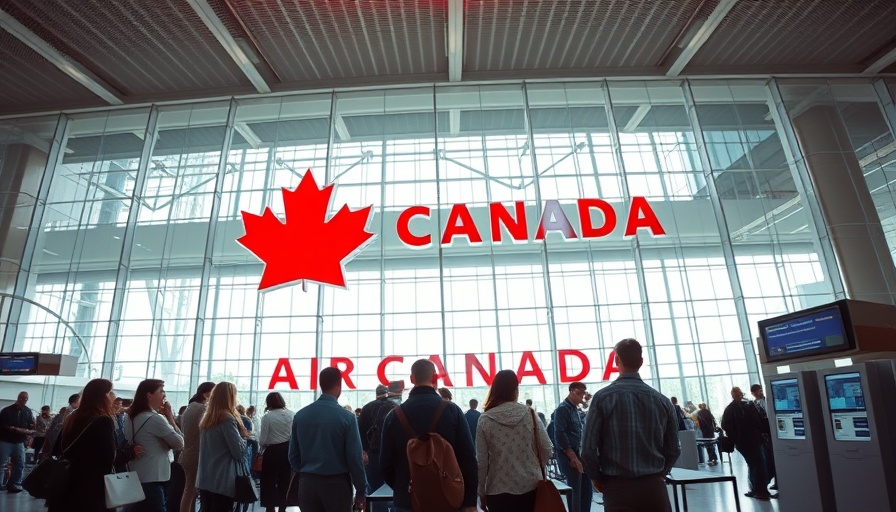
Impact of Flight Cancellations on Travelers’ Plans
Air Canada’s recent flight cancellations have become a major hurdle for passengers, especially during the busy summer travel season. The turmoil stems from a strike by unionized flight attendants, which has disrupted not only Air Canada’s operations but also the long-awaited holiday plans of many. Passengers are now left grappling with unexpected expenses for accommdations and meals, while the airline navigates the complexities of restoring complete service.
Passenger Experiences: A Tale of Frustration
Take Cory Bolton, a traveler from a small vicinity close to Terrace. He made a memorable trip to Toronto with his daughter, enjoying tourist attractions such as Ripley’s Aquarium and the iconic CN Tower. However, his joy was short-lived when he received a notification that their return flight was canceled. “I got the text at about 10:50 in the morning saying my flights are cancelled,” he shared, unable to return home as planned. With the next available flight not until August 20, Bolton faced the daunting reality of spending several additional days in Toronto—with all expenses falling on him. “I’m pretty much stuck here on my own expense. I have to pay for all the hotels and the meals myself,” he lamented.
Government Intervention: An Attempt at Resolution
In light of the considerable unrest caused by the flight cancellations, Federal Jobs Minister Patty Hajdu stepped in by facilitating binding arbitration between the airline and the union. This move aims to establish a resolution to the ongoing contract dispute that has led to the strike. Many affected passengers are uncertain if they will receive compensation for their additional expenses; some experts predict challenges ahead for travelers seeking restitution for their incurred costs.
Understanding the Broader Context of Labor Relations
As observed in labor disputes across various sectors, aviation is marked by unique challenges in maintaining equilibrium between staff compensation and operational viability. This situation not only affects the airline staff but has larger implications on customers who expect reliable services. The discourse on fair wages, working conditions, and service consistency looms as discussions for better labor laws gain traction in Canadian aviation.
The Human Element: Navigating Travel Disruptions
The emotional toll of such cancellations is often neglected in the midst of logistical complexities. Many travelers feel a sense of helplessness, knowing their carefully planned trips have gone awry due to circumstances beyond their control. Insights from the situation highlight the importance of developing strategies for travel resilience, especially in dynamic environments where disruptions can happen unexpectedly. Building awareness about passengers’ rights in such cases can also empower travelers to seek fair treatment and compensation.
Looking Ahead: A Possible Shift in Airline Operations
As Air Canada charts a path towards regaining normal operations, industry experts are watching closely. The ongoing strike and its resultant impact may prompt the airline to reassess operational protocols and customer service. Innovations could arise from this challenging scenario, such as improved communication tools to keep passengers informed about their travel plans or enhanced compensation policies to better address customer grievances in the future.
Conclusion: The Takeaway for Travelers
Travelers grappling with the fallout of Air Canada’s flight cancellations should stay informed about their rights and possible compensation avenues. As the airline works to recover from this disruption, being proactive can help ensure that passengers navigate their journeys with as little hassle as possible. Understanding labor dynamics within the industry can also provide unique insights into the complexities that affect travel operations.
As we observe the lessons learned during this incident, it is crucial to connect the dots between labor relations and customer satisfaction in the aviation sector, as these elements directly influence the experiences of countless travelers. By sharing insights and strategies, we can foster a more resilient and informed travel community ready to adapt to unforeseen challenges.
 Add Row
Add Row  Add
Add 




Write A Comment